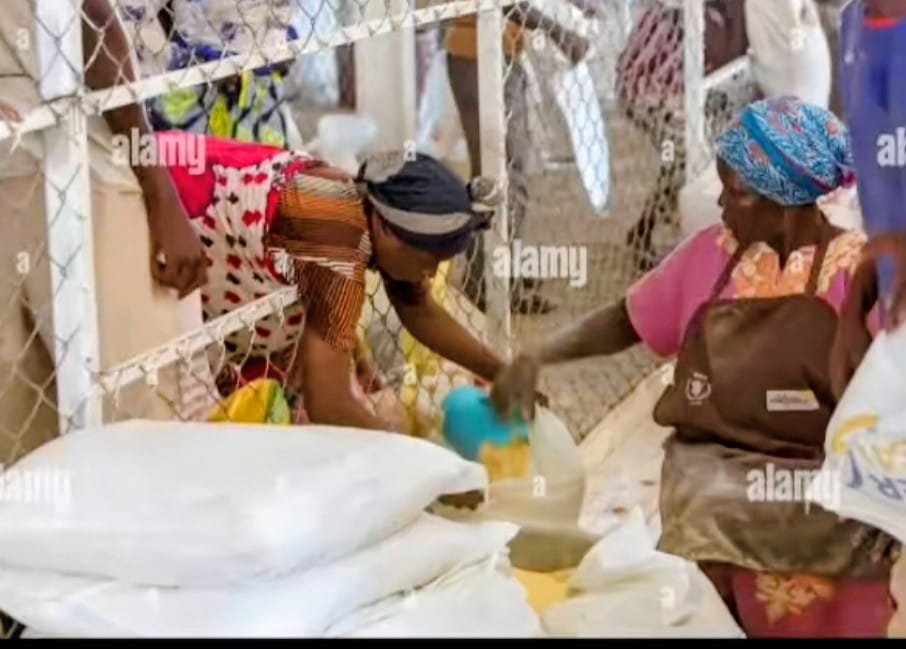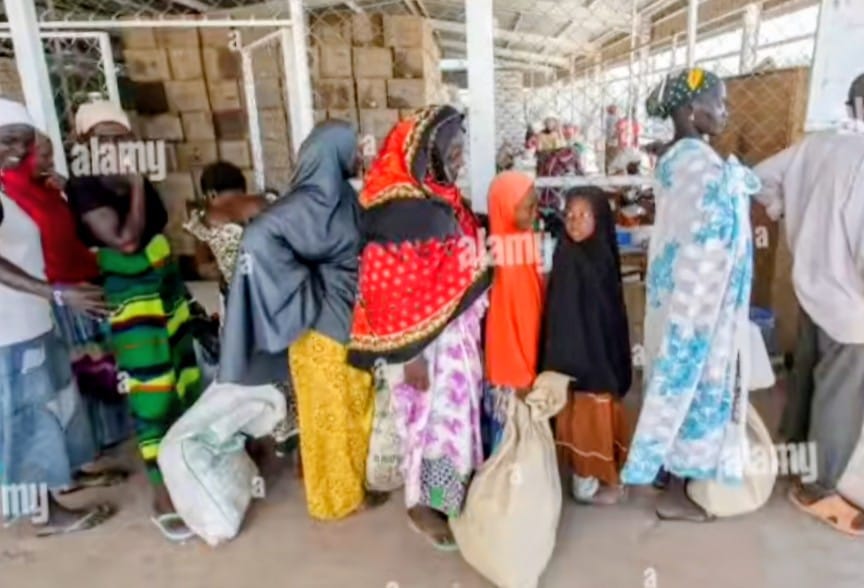At Kenya’s Kakuma Refugee Camp, Category Three refugees have long complained about unfair treatment and food distribution. Despite being informed that their vulnerability level was lower, many felt abandoned when Category Two refugees received assistance. This led to hardship and frustration, particularly as food prices increased and opportunities continued to be scarce.
There’s a new lifeline now. Following an assessment of their vulnerability, the United Nations High Commissioner for Refugees (UNHCR) has declared that food assistance will be extended to Category Three refugees in Kakuma. They will be treated in the same manner as Category Two. Refugees in Kalobeyei Settlement, however, are still awaiting their turn and are hopeful that their names will soon be added to the list of recipients.
This report takes a closer look at the situation, the voices of refugees and what the future my hold.
The Long Wait for Category Three Refugees
Hundreds of thousands of people who fled poverty, persecution, and conflict in places like South Sudan, Somalia, Ethiopia, Burundi, and the Democratic Republic of the Congo now reside in the Kakuma Refugee Camp. UNHCR and its partners classify refugees according to their level of vulnerability in order to manage resources.
Category One: The most vulnerable, including elderly, sick, disabled and unaccompanied minors.
Category Two: Families and individuals considered moderately vulnerable.
Category Three: Refugees are thought to be less vulnerable and to have better coping skills.
Category Three refugees felt abandoned for years. Even though many of them faced the same issues—hunger, unemployment, and lack of opportunities—they were given less assistance than other groups. The gap grew as a result of international funding cuts to refugee programs. Refugees demanded equal treatment, and complaints piled up. Young people complained about being forgotten, and mothers were concerned about their kids going to bed hungry.
UNHCR Responds After Reviews
UNHCR finally reviewed the situation after multiple rounds of assessments and loud community voices. The conclusion was unmistakable: a large number of Category Three refugees still required assistance and were extremely vulnerable.
UNHCR responded by announcing that food will now be provided to Category Three refugees in Kakuma in the same manner as Category Two refugees. Families who have been making do with little to nothing have expressed relief at the decision.
A UNHCR field officer, speaking during the announcement, clearly explained:
“The review revealed that there was less of a difference between Category Two and Category Three than we initially believed. The difficulties faced by many families in Category Three are similar. It is our duty to ensure that nobody is left behind”.
Reactions from Refugees in Kakuma
In Kakuma, the news swiftly spread, bringing relief, happiness, and hope. After years of silence, refugees reported feeling heard at last.
A Somali mother of five said:
“My kids have been going to bed hungry for a while. Sharing with neighbours was the only way we were able to survive. At least I can cook now without having to beg”.

A South Sudanese youth expressed:
“We frequently voiced our complaints. We are strong enough, they said, but hunger knows no bounds. I’m glad we’re finally acknowledged”.
However, refugees also pointed out that food aid is insufficient on its own. Many asked for greater access to health care, education, and livelihood opportunities.
Kalobeyei Settlement Still Waiting
While Kakuma Category Three refugees rejoice, Kalobeyei Settlement, which is only a few kilometres away, has a different story to tell. There, refugees are still awaiting their opportunity, particularly those in Category Three. Kalobeyei was intended to serve as a model settlement where host communities and refugees could coexist, cultivate land, and launch enterprises. However, in practice, life is still difficult and resources are limited. Many families rely on meagre rations or part-time jobs that hardly cover necessities, and food distribution has been irregular.
One refugee leader in Kalobeyei said:
“We are pleased for our Kakuma siblings, but what about us? Do we have less humanity? We suffer too. We also require food”.
It is hoped that Kalobeyei will follow Kakuma in queue for rollout. The timeline has not been confirmed by UNHCR, but many anticipate an announcement shortly.
Challenges Facing UNHCR
There are difficulties in extending food assistance to Category Three. The largest barrier is still funding. With conflicts vying for attention and resources in Syria, Sudan, Ukraine, and other regions, the global refugee crisis has put a strain on humanitarian budgets.
International donors are crucial to Kenya’s refugee programs. Funding cuts result in fewer opportunities for education, less food, and fewer healthcare services.
A humanitarian worker explained:
“It’s not that UNHCR doesn’t wish to assist everyone. In actuality, funding is decreasing. Overwhelmed donors occasionally give priority to those who are most in need. However, the distinction between the various levels of vulnerability is now too blurry to be disregarded”.
Impact of Equal Food Distribution
There are a number of anticipated benefits to Kakuma’s decision to accept Category Three refugees:
1 Reduced hunger and malnutrition
Now that families are eating meals on a regular basis, there will be fewer cases of malnutrition, particularly in children.
2 Improved dignity
Refugees will feel less forgotten and more appreciated.

3 Social stability
Treating everyone equally could ease camp tensions and grievances.
4 Better health
Eating the right food can help people feel better and ease the strain on hospitals.
But if livelihoods and self-reliance initiatives are not improved, problems will persist. Food aid is not a permanent solution for refugees.
The Road Ahead for Kalobeyei
Kalobeyei Settlement is the next topic of discussion. There, refugees are still calling for justice and equality. Many people think Kalobeyei should get a review if Kakuma did. The settlement faces particular difficulties: Drought has reduced farming opportunities. limited business and employment opportunities. growing host-refugee tensions over limited resources. Relief and hope could be restored if Kalobeyei is incorporated into the new support plan. The waiting goes on until then.
Voices of Hope and Concern
Community leaders, aid workers, and refugees express a mixture of caution and hope:
A Congolese teacher in Kakuma:
“This is a positive step, but it needs to go on.” After a few months, we don’t want it to end”.
A Kalobeyei youth leader:
“Hopefully, UNHCR will hear our plea shortly. We also want to eat with honour”.
A humanitarian worker:
“The truth is that food assistance is only available for a limited time. To enable refugees to support themselves, we must invest in their livelihoods and education”.
Conclusion
It is a significant step forward that food distribution is now available to Category Three refugees in Kakuma. It resolves long-standing grievances and restores hope to thousands of families. The story isn’t finished, though. In the hopes that they will be included after Kakuma, refugees in Kalobeyei Settlement are still waiting for their opportunity.
For the time being, the ruling represents a step in the direction of equality and justice in humanitarian assistance. However, it also draws attention to the continuous difficulties with financing, sustainability, and refugee independence. Refugees continue to hope that their voices will not be ignored as the world watches.

